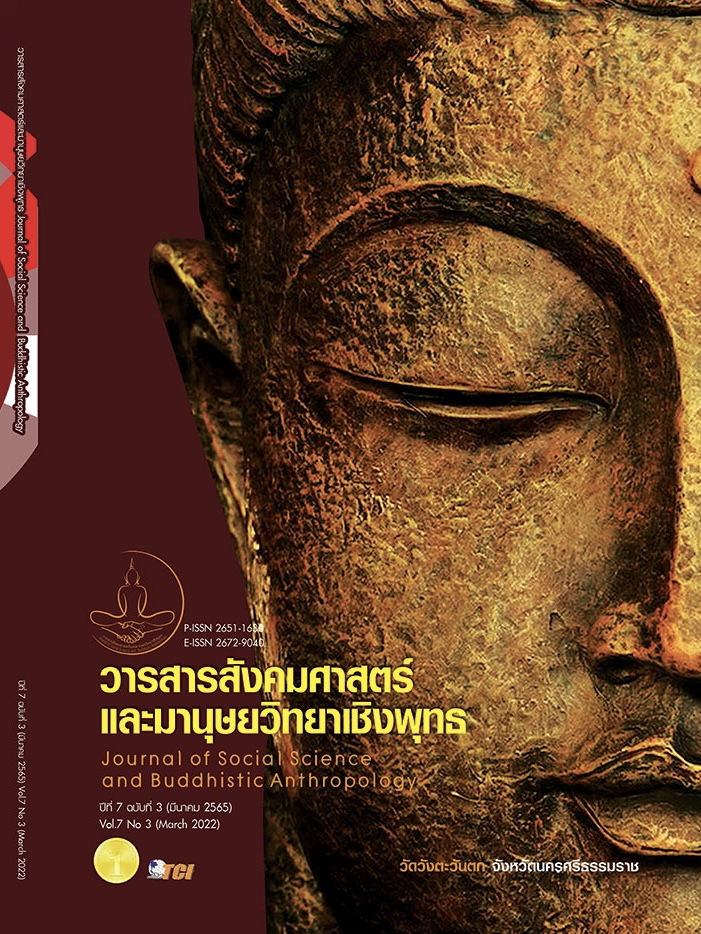A DEVELOPMENT OF INTERNSHIP MODEL OF SPORTS SCIENCE STUDENTS FOR ELITE SPORTS TEAMS IN THAILAND
Keywords:
Development, Internship model, Sports Science Students, Elite SportsAbstract
The objectives of this research article were to study and develop an internship model of Sports Science students for elite sports teams in Thailand. This research was a qualitative research approach with Semi-Structure Interview. In the first phase, Data were collected by in-depth interviews with the 24 participants including course administrators, course instructors, lecturers, supervisors sports professionals for sport elite, team managers, coaches. Sports science mentors, and the interns in sports science, who involved with the internship of Sports Science students in elite sports teams in Thailand. In the second phase, the Delphi survey and qualitative research methods were assorted to collect data with 18 participants. In the third phase, the validation of the model was conducted by a focus-group discussion by 11 experts. All participants from three phases of the data collection were obtained by purposive sampling. Research instruments consisted of the model of internship of sports science students for elite sports teams in Thailand, the model of quality assessment form, and the satisfactory assessment form which data were analyzed by median (Mdn), Interquartile Range (I.R.), Objective Congruence Index (IOC) determination. The findings of the research revealed that the state and development of an internship model of sports science students for elite sports teams in Thailand can be adjusted into the form of “POSDCoRB-AAR”, consisted of ten components: Planning, Organizing, Staffing, Directing, Coordinating, Reporting, Budgeting, Alliance, Authorized Person and Risk Management. The research pointed out that the educational institutions' workflow in the preparation and the building of necessary competencies during the internship of sports science students meets the needs of the sports teams for further elite sports teams.
References
การกีฬาแห่งประเทศไทย. (2560). แผนยุทธศาสตร์การกีฬาแห่งประเทศไทย พ.ศ. 2560 – 2564. กรุงเทพมหานคร: กระทรวงการท่องเที่ยวและกีฬา.
เด่นชัย สมปอง. (2556). ศึกษาสภาพและปัญหาการจัดการฝึกประสบการณ์วิชาชีพนักศึกษา หลักสูตรบริหารธุรกิจตามกรอบมาตรฐานคุณวุฒิระดับอุดมศึกษามหาวิทยาลัยราชภัฏสกลนคร. เรียกใช้เมื่อ 2 เมษายน 2561 จาก https://www.tci-thaijo.org /index.php/snru_journal/article/download/18480/16275
วัชรินทร์ รักเสนาะ. (2558). การพัฒนารูปแบบการจัดการบริหารระบบการจัดการเรียนการสอนสหกิจศึกษา. วารสารวิชาการศิลปะศาสตร์ประยุกต์, 8(1), 98-105.
สถาบันคุณวุฒิวิชาชีพ (องค์กรมหาชน). (2560). คู่มือการประเมินมาตรฐานอาชีพและคุณวุฒิวิชาชีพ สาขาวิชาชีพการกีฬาสาขาการให้บริการทางด้านการกีฬา. กรุงเทพมหานคร: สำนักนายกรัฐมนตรี.
สุกัญญา รัศมีธรรมโชติ. (2548). แนวทางการพัฒนาศักยภาพมนุษย์ด้วย Competency Based Learning. (พิมพ์ครั้งที่ 3). กรุงเทพมหานคร: ศิริวัฒนา อินเตอร์พรินท์.
เสาวนีย์ เต็งสุวรรณ์. (2559). การพัฒนารูปแบบการฝึกประสบการณ์วิชาชีพเลขานุการสำหรับนักศึกษาอาชีวศึกษา. ใน ดุษฎีนิพนธ์การศึกษาดุษฎีบัณฑิต สาขาวิชาหลักสูตรและการสอน. มหาวิทยาลัยราชภัฏนครสวรรค์.
Beck, C. E. and French, M. (2012). The College of Business Internship Program: A Comprehensive Study of the First 10 Years. Global Business & Economics Anthology, 1(1), 234-247.
Brown, C. et al. (2016). Sport Management Internships: Requirements and Policies. Journal of Physical Education and Sports Management, 3(2). 1-22.
Cameron, C., et al. (2013). Making Economics Real: The Economics Internship. International Review of Economics Education, 13(1), 10-25.
Gulick, L. & Urwick, L. (1973). The Science of Administration. New York: Columbia University.
Ivancevich, J. M. (2013). Human resource management 12th ed. United States: McGraw-Hill.
Kanter, R. M. (1977). Men and Woman of the Corporation. New York: Basic Books.
Kolb, A. Y., & Kolb, D. A. (2005). Learning Styles and Learning Spaces: Enhancing Experiential Learning in Higher Education. Retrieved March 18, 2018, from http://dx.doi.org/10.5465/AMLE.2005.17268566
Malone, J. J. (2017). Sport science internships for learning: a critical view School of Health Sciences, Liverpool Hope University, Liverpool, United Kingdom. Adv Physiol Educ , 41(4), 569-57.
Marinakou, E. (2017). Student satisfaction and expectations from internships In Greece: A comparison between Greek and International students. Journal of Tourism and Hospitality Management, 1(3), 2328-2169.
Martin, A. & Hughes, H. (2009). How to Make the Most of Work Integrated Learning: A Guide for Students, Lectureres & Supervisors. New Zealand: Messey.
McClelland, D. C. (1993). Intelligence Is Not the Best Predictor of Job Performance. Current Directions in Psychological Science, 2(1), 5-6.
Downloads
Published
How to Cite
Issue
Section
License
Copyright (c) 2022 Journal of Social Science and Buddhistic Anthropology

This work is licensed under a Creative Commons Attribution-NonCommercial-NoDerivatives 4.0 International License.









